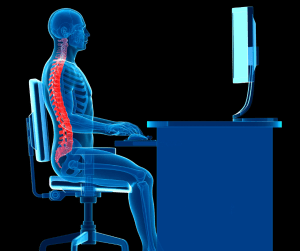Back to Basics: Understanding the Importance of Back Care
by Sandra Hope | Oct 18, 2023 | Therapy |

Back to Basics: Understanding the Importance of Back Care
In the hustle and bustle of our daily lives, it’s easy to overlook the essential foundation of our mobility and well-being – our backs.
The significance of back care often becomes apparent only when discomfort or pain strikes, hindering our ability to perform even the simplest tasks.
Understanding the fundamentals of back care is not just a matter of comfort; it’s a crucial aspect of overall health that can profoundly impact our quality of life.
Why Back Care Matters

Our back, with its complex structure of bones, muscles, ligaments, and nerves, plays a pivotal role in our body’s functionality.
It provides support, stability, and flexibility, allowing us to stand, sit, bend, and twist.
Poor back health can lead to a range of issues, from mild discomfort to chronic pain, affecting our ability to work, exercise, and enjoy daily activities.
Maintaining Proper Posture

One of the fundamental aspects of back care is maintaining proper posture. Slouching or sitting hunched over can strain the structures in the spine, leading to pain and discomfort.
Whether you’re sitting at a desk, driving, or standing, being mindful of your posture can significantly reduce the stress on your back. Sit up straight, align your shoulders with your hips, and support the natural curve of your lower back to maintain good posture.
Regular Exercise and Stretching

Engaging in regular exercise and stretching routines is vital for back care. Exercise strengthens the muscles that support the spine, enhancing stability and reducing the risk of injuries.
Activities like walking, swimming, and yoga promote overall fitness while being gentle on the back. Moreover, specific back-focused exercises can target the muscles in the lower back and core, providing additional support to the spine.
Ergonomic Practices

Whether at work or home, incorporating ergonomic practices into your environment can significantly contribute to back care. Invest in a chair that provides proper lumbar support and encourages good posture.
If you work on a computer, ensure that your screen is at eye level and your keyboard and mouse are within easy reach to avoid straining your back and shoulders. Additionally, use proper lifting techniques, bending your knees and keeping the object close to your body, to prevent back injuries.
The Role of Nutrition

Believe it or not, your diet can influence your back health. Maintaining a healthy weight is crucial, as excess weight, especially around the abdomen, can strain the lower back.
A balanced diet rich in calcium and vitamin D supports bone health, reducing the risk of conditions like osteoporosis that can affect the spine. Adequate hydration is also essential, as the discs in your spine require water to maintain their spongy, shock-absorbing properties.
Mind-Body Connection

Stress and anxiety can manifest physically, often in the form of back pain. Incorporating relaxation techniques like meditation, deep breathing, or yoga not only alleviates stress but also promotes muscle relaxation, reducing tension in the back.
Regular massages can also be beneficial, as they help improve circulation, relieve muscle tightness, and enhance overall back health. However, you should not wait to be in pain before you book a massage. Massage could be looked at as a preventative and regular sessions every 4-6 weeks could potentially prevent any issues.
In essence, back care is about cultivating awareness of your body and making conscious choices that promote a healthy spine. By incorporating proper posture, regular exercise, ergonomic practices, a balanced diet, and relaxation techniques into your daily routine, you can significantly reduce the risk of back problems and enhance your overall well-being.
Remember, investing in your back health today can pave the way for a more comfortable and active future. So, let’s get back to basics, understanding that back care isn’t just a choice; it’s a necessity for a fulfilling and pain-free life.
How Essential Thyme can help with back care?

Essential Thyme Therapies has something for everyone. Whether you have a specific concern, pain or you just need to relax and release stress, we can help.
We offer a full and comprehensive consultation before any treatment is undertaken to assess your suitability.
Additionally, we offer monthly massage memberships so you can receive regular massages to help with back care.
Visit my website for more information on the therapies we offer at Essential Thyme.








